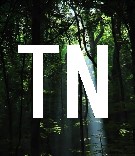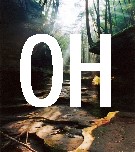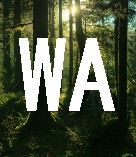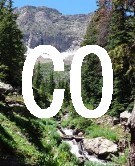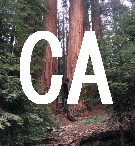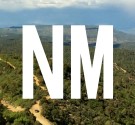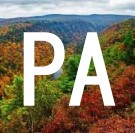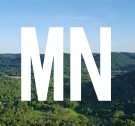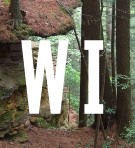Geographical Index > Canada > British Columbia > Report # 1091
(Class A)
Submitted by John Green on Saturday, January 1, 2000.
Albert Ostman account -- Multiple-day encounter with family of Sasquatches
(Show Printer-friendly Version)
YEAR: 1924
SEASON: Summer PROVINCE: British Columbia COUNTRY: Canada LOCATION DETAILS: Near the Toba Inlet OBSERVED: I have always followed logging and construction work. This time I had worked for over one year on a construction job and thought a good vacation was in order. B.C. is famous for lost gold mines. One is supposed to be at the head of Toba Inlet—why not look for this mine and have a vacation at the same time? I took the Union Steamship boat to Lund, B.C. From there I hired an old Indian to take me to the head of Toba Inlet.
This old Indian was a very talkative old gentleman. He told me stories about gold brought out by a white man from this lost mine. This white man was a very heavy drinker—spent his money freely in saloons. But he had no trouble getting more money. He would be away a few days, then come back with a bag of gold. But one time he went to his mine and never came back. Some people said a Sasquatch had killed him.
At that time I had never heard of Sasquatch. So I asked what kind of an animal he called a Sasquatch. The Indian said, “They have hair all over their bodies, but they are not animals. They are people. Big people living in the mountains. My uncle saw the tracks of one that were two feet long. One old Indian saw one over eight feet tall.
I told the Indian I didn’t believe in their old fables about mountain giants. It might have been some thousands of years ago, but not nowadays.
The Indian said, “There may not be many, but they still exist.”
We arrived at the head of the inlet at 4:00 p.m. I made camp at the mouth of a creek. The Indian was in no hurry, he had to wait for the high tide to go back. That would be about 7:00 p.m. I tried to catch some trout in the creek, but no luck. The Indian had supper with me, and I told him to look out for me in about three weeks. I would be camping at the same spot when I came back. He promised to tell his friend to look out for me too.
I spent most of the forenoon looking for a trail but found none, except for a hog-back running down to within about a hundred feet of the beach. So I swamped out a trail from there, got back to my camp about 3:00 p.m. that afternoon and made up my pack to be ready in the morning. My equipment consisted of one 30-30 Winchester rifle, I had a special home-made prospecting pick, axe on one end, and pick on the other. I had a leather case for this pick which fastened to my belt, also my sheath knife.
Next morning I took my rifle with me, but left my equipment at the camp. I decided to look around for some deer trail to lead me up into the mountains. On the way up the inlet I had seen a pass in the mountainside that I wanted to go through, to see what was on the other side.
The storekeeper at Lund was co-operative. He gave me some cans for my sugar, salt and matches to keep them dry. My grub consisted mostly of canned stuff, except for a side of bacon, a bag of beans, four pounds of prunes and six packets of macaroni, three pounds of pancake flour, cheese, and six packets Rye King hard tack, three rolls of snuff, one quart sealer of butter and two one-pound cans of milk. I had two boxes of shells for my rifle.
The storekeeper gave me a biscuit tin, I put a few things in that and cached it under a windfall, so I would have it when I came back here waiting for a boat to bring me out. My sleeping bag I rolled up and tied on top of my pack sack—together with my ground sheet, small frying pan, and one aluminum pot that held about a gallon. As my canned food was used, I would get plenty of empty cans to cook with.
The following morning I had an early breakfast, made up my pack, and started up this hogback. My pack must have been at least eighty pounds, besides my rifle. After one hour, I had to rest. I kept resting and climbing all that morning. About 2:00 p.m. I came to a flat place below a rock bluff. There was a bunch of willow in one place. I made a wooden spade and started digging for water. About a foot down I got seepings of water, so I decided to camp here for the
night, and scout around for the best way to get on from here.
I must have been up near a thousand feet. There was a most beautiful view over the islands and the Strait—tugboats with log booms, and fishing boats going in all directions, A lovely spot. I spent the following day prospecting round. But no sign of minerals. I found a deer trail leading towards this pass that I had seen on my way up the inlet.
The following morning I started out early, while it was cool. It was steep climbing with my heavy pack. After a three hours climb, I was tired and stopped to rest. On the other side of a ravine from where I was resting was a yellow spot below some small trees. I moved over there and started digging for water.
I found a small spring and made a small trough from cedar bark and got a small amount of water, had my lunch and rested here till evening. This was not a good camping site, and I wanted to get over the pass. I saved all the water I got from this spring, as I might not find water on the other side of this pass. However, I made it over the pass late that night.
Now I had downhill and good going, but I was hungry and tired, so I camped at the first bunch of trees I came to. I had about a gallon of water so I was good for one day. Of course, I could see rough country ahead of me, and I was trying to size up the terrain—what direction I would take from here. Towards the west would lead to low land and some other inlet, so I decided to go in a northeast direction, but I had to find a good way to get down.
I left my pack and went east along a ledge but came to an abrupt end—was two or three hundred feet straight down. I came back, found a place only about 50 feet down to a ledge that looked like good going for as far as I could see. I got down on this ledge all right and had good going and slight down hill all day—I must have made 10 miles when I came to a small spring and a big black hemlock tree.
This was a lovely campsite. I spent two days here just resting and prospecting. There were some minerals but nothing interesting. The first night here I shot a small deer (buck) so I had plenty of good meat, and good water. The weather was very hot in the daytime, so I was in no hurry, as I had plenty of meat. When I finally left this camp, I got into plenty of trouble. First I got into a box canyon, and had to come back almost where I started this morning, when I found a deer trail down to another ledge, and had about two miles of good going. Then I came to another canyon, and on the other side was a yellow patch of grass that meant water. I made it down into this canyon, and up on the other side, but it was tough climbing. I was tired and when I finally got there I dug a pit for water and got plenty for my needs. I only stayed here one night, it was not a good camping site. Next day I had hard going. I made it over a well timbered ridge into another canyon. This canyon was not so steep on the west side, but the east side was almost plumb. I would have to go down hill to find a way out. I was now well below the timber line.
I found a fair campsite that night, but moved on the next morning. It was a very hot day, not a breath of wind.
Late that day I found an exceptionally good campsite. It was two good-sized cypress trees growing close together and near a rock wall with a nice spring lust below these trees. I intended to make this my permanent camp. I cut lots of brush for my bed between these trees. I rigged up a pole from this rock wall to hang my packsack on, and I arranged some fiat rocks for my fireplace for cooking. I had a really classy setup. I shot a grouse just before I came to this place. Too late to roast that tonight—I would do that tomorrow.
And that’s when things began to happen. I am a heavy sleeper, not much disturbs me after I go to sleep, especially on a good bed like I had now.
Next morning I noticed things had been disturbed during the night. But nothing missing that I could see. I roasted my grouse on a stick for my breakfast—about 9:00 a.m. I started out prospecting. I always carried my rifle with me. Your rifle is the most important part of your equipment.
I started out in a southwest direction below the way I had come in the night before. There were some signs (minerals) but nothing important. I shot a squirrel in the afternoon, and got back to camp at 7:00 p.m. I fried the squirrel on a stick, opened a can of peas and carrots for my supper, and gathered up dry branches from trees. There are always dead branches of fir and hemlock under trees, near the ground. They make good fuel and good heat.
That night I filled up the magazine of my rifle. I still had one full box of 20 shells in my pack, besides a full magazine and six shells in my coat pocket. That night I laid my rifle under the edge of my sleeping bag. I thought a porcupine had visited me the night before and porkies like leather, so I put my shoes in the bottom of my sleeping bag.
Next morning my pack sack had been emptied out. Someone had turned the sack upside down. It was still hanging on the pole from the shoulder straps as I had hung it up. Then I noticed one half-pound package of prunes was missing. Also my pancake flour was missing, but my salt bag was not touched. Porkies always look for salt, so I decided it must be something else than porkies. I looked for tracks but found none. I did not think it was a bear, they always tear up and make a mess of things. I kept close to camp those days in case this visitor would come back.
I climbed up on a big rock where I had a good view of the camp, but nothing showed up. I was hoping it would be a porky so I could get a good porky stew. These visits had now been going on for three nights.
I intended to make a new campsite the following day, but I hated to leave this place. I had fixed it up so nicely, and these two cypress trees were bushy. It would have to be a heavy rain before I would get wet, and I had good spring water and that is hard to find.
This night it was cloudy and looked like it might rain. I took special notice of how everything was arranged. I closed my pack sack, I did not undress, I only took off my shoes, put them in the bottom of my sleeping bag. I drove my prospecting pick into one of the cypress trees so I could reach it from my bed. I also put the rifle alongside me, inside my sleeping bag. I fully intended to stay awake all night to find out who my visitor was, but I must have fallen asleep.
I was awakened by something picking me up. I was half asleep and at first I did not remember where I was. As I began to get my wits together, I remembered I was on this prospecting trip, and in my sleeping bag.
My first thought was—it must be a snow slide, but there was no snow around my camp. Then it felt like I was tossed on horseback, but I could feel whoever it was, was walking.
I tried to reason out what kind of animal this could be, I tried to get at my sheath knife, and cut my way out, but I was in an almost sitting position, and the knife was under me. I could not get hold of it, but the rifle was in front of me, I had a good hold of that, and had no intention to let go of it. At times I could feel my packsack touching me, and could feel the cans in the sack touching my back.
After what seemed like an hour, I could feel we were going up a steep hill. I could feel myself rise for every step. What was carrying me was breathing hard and sometimes gave a slight cough. Now, I knew this must be one of the mountain Sasquatch giants the Indian told me about.
I was in a very uncomfortable position, unable to move. I was sitting on my feet, and one of the boots in the bottom of the bag was crossways with the hobnail sole up across my foot. It hurt me terribly, but I could not move.
It was very hot inside. It was lucky for me this fellow’s hand was not big enough to close up the whole bag when he picked me up--there was a small opening at the top. Otherwise I would have choked to death.
Now he was going downhill, I could feel myself touching the ground at times and at one time he dragged me behind him and I could feel he was below me. Then he seemed to get on level ground and was going at a trot for a long time. By this time, I had cramps in my legs, the pain was terrible. I was wishing he would get to his destination soon. I could not stand this type of transportation much longer.
Now he was going uphill again. It did not hurt me so bad. I tried to estimate distance and directions. As near as I could guess we were about three hours travelling. I had no idea when he started as I was asleep when he picked me up.
Finally he stopped and let me down. Then he dropped my packsack, I could hear the cans rattle. Then I heard chatter—some kind of talk I did not understand. The ground was sloping so when he let go of my sleeping bag, I rolled over head first downhill. I got my head out, and got some air. I tried to straighten my legs and crawl out, but my legs were numb.
It was still dark, I could not see what my captors looked like. I tried to massage my legs to get some life in them, and get my shoes on. I could hear now it was at least four of them. They were standing around me and continuously chattering. I had never heard of Sasquatch before the Indian told me about them. But I knew I was right among them.
But how to get away from them, that was another question. I got to see the outline of them now, as it began to get lighter....
I now had circulation in my legs, but my left foot was very sore on top where it had been resting on my hobnail boots. I got my boots out from the sleeping bag and tried to stand up. I was wobbly on my feet but had a good hold of my rifle.
I asked, “What you fellows warn with me?”
Only some more chatter.
It was getting lighter now, and I could see them quite clearly. I could make out forms of four people. Two big ones and two little ones. They were all covered with hair and no clothes on at all.
I could now make out mountains all around me. I looked at my watch. It was 4:25 a.m. It was getting lighter now and I could see the people clearly.
They look like a family, old man, old lady and two young ones, a boy and a girl. The boy and the girl seem to be scared of me. The old lady did not seem too pleased about what the old man dragged home. But the old man was waving his arms and telling them all what he had in mind. They all left me then.
I had my compass and my prospecting glass on strings around my neck. The compass in my lefthand shirt pocket and my glass in my righthand pocket. I tried to reason our location, and where I was. I could see now that I was in a small valley or basin about eight or ten acres, surrounded by high mountains, on the southeast side there was a V-shaped opening about eight feet wide at the bottom and about twenty feet wide at the highest point—that must be the way I came in. But how will I get out? The old man was now sitting near this opening.
I moved my belongings up close to the west wall. There were two small cypress trees there, and this will do for a shelter for the time being. Until I find out what these people want with me, and how to get away from here. I emptied out my packsack to see what I had left in the line of food. All my canned meat and vegetables were intact and I had one can of coffee. Also three small cans of milk—two packages of Rye King hard tack and my butter sealer half full of butter. But my prunes and macaroni were missing. Also my full box of shells for my rifle. I only had six shells beside what I had in the magazine of my rifle, I had my sheath knife but my prospecting pick was missing and my can of matches. I only had my safety box full and that held about a dozen matches. That did not worry me—I can always start a fire with my prospecting glass when shining, if I got dry wood. I wanted hot coffee, but I had no wood, also nothing around here that looked like wood. I had a good look over the valley from where I was—but the boy and the girl were always watching me from behind some juniper bush. I decided there must be some water around here. The ground was leaning towards the opening in the wall. There must be water at the upper end of this valley, there is green grass and moss along the bottom.
All my utensils were left behind. I opened my coffee tin and emptied the coffee in a dish towel and tied it with the metal strip from the can. I took my rifle and the can and went looking for water. Right at the head under a cliff there was a lovely spring that disappeared underground. I got a drink, and a full can of water, When I got back the young boy was looking over my belongings, but did not touch anything. On my way back I noticed where these people were sleeping. On the east side wall of this valley was a shelf in the mountain side, with overhanging rock, looking something like a big undercut in a big tree about 10 feet deep and 30 feet wide. The floor was covered with lots of dry moss, and they had some kind of blankets woven of narrow strips of cedar bark, packed with dry moss. They looked very practical and warm—with no need of washing.
The first day not much happened. I had to eat my food cold. The young fellow was coming nearer me, and seemed curious about me. My one snuff box was empty, so I rolled it towards him. When he saw it coming, he sprang up quick as a cat, and grabbed it. He went over to his sister and showed her. They found out how to open and close it—they spent a long time playing with it—then he trotted over to the old man and showed him. They had a long chatter.
Next morning, I made up my mind to leave this place—if I had to shoot my way out. I could not stay much longer, I had only enough grub to last me till I got back to Toba Inlet. I did not know the direction but I would go down hill and I would come out near civilization some place. I rolled up my sleeping bag, put that inside my packsack—packed the few cans I had—swung the sack on my back, injected a shell in the barrel of my rifle and started for the opening in the wall. The old man got up, held up his hands as though he would push me back.
I pointed to the opening. I wanted to go out. But he stood there pushing towards me—and said something that sounded like “Soka soka.” I backed up to about sixty feet. I did not want to be too close, I thought, if I had to shoot my way out. A 30-30 might not have much effect on this fellow, it might make him mad, I only had six shells so I decided to wait. There must be a better way than killing him, in order to get out from here. I went back to my campsite to figure out some other way to get out.
If I could make friends with the young fellow or the girl, they might help me. If I only could talk to them. Then I thought of a fellow who saved himself from a mad bull by blinding him with snuff in his eyes. But how will I get near enough to this fellow to put the snuff in his eyes? So I decided next time I give the young fellow my snuff box to leave a few grains of snuff in it. He might give the old man a taste of it.
But the question is, in what direction will I go, if I should get out? I must have been near 25 miles northeast of Toba Inlet when I was kidnapped. This fellow must have traveled at least 25 miles in the three hours he carried me. If he went west we would be near salt water—same thing if he went south—therefore he must have gone northeast. If I then keep going south and over two mountains, I must hit salt water someplace between Lund and Vancouver.
The following day I did not see the old lady till about 4:00 p.m. She came home with her arms full of grass and twigs of all kinds from spruce and hemlock as well as some kind of nuts that grow in the ground. I have seen lots of them on Vancouver Island. The young fellow went up the mountain to the east every day, he could climb better than a mountain goat. He picked some kind of grass with long sweet roots. He gave me some one day—they tasted very sweet. I gave him another snuff box with about a teaspoon of snuff in it. He tasted it, then went to the old man--he licked it with his tongue. They had a long chat. I made a dipper from a milk can. I made many dippers—you cut two slits near the top of any can—then cut a limb from any small tree—cut down back of the limb—down the stem of the tree—then taper the part you cut from the stem. Then cut a hole in the tapered part, slide the tapered part into the slit you made in the can, and you have a good handle on your can. I threw one over to the young fellow that was playing near my camp, he picked it up and looked at it then he went to the old man and showed it to him. They had a long chatter. Then he came to me, pointed at the dipper then at his sister. I could see that he wanted one for her too. I had other peas and carrots, so I made one for his sister, He was standing only eight feet away from me. When I had made the dipper, I dipped it in water and drank from it, he was very pleased, almost smiled at me. Then I took a chew of snuff, smacked my lips, said that’s good.
The young fellow pointed to the old man, said something that sounded like “Oook.” I got the idea that the old man liked snuff, and the young fellow wanted a box for the old man. I shook my head. I motioned with my hands for the old man to come to me. I do not think the young fellow understood what I meant. He went to his sister and gave her the dipper I made for her. They did not come near me again that day. I had now been here six days, but I was sure I was making progress. If only I could get the old man to come over to me, get him to eat a full box of snuff that would kill him for sure, and that way kill himself, I wouldn’t be guilty of murder.
The old lady was a meek old thing. The young fellow was by this time quite friendly. The girl would not hurt anybody. Her chest was flat like a boy—no development like young ladies. I am sure if I could get the old man out of the way, I could easily have brought this girl out with me to civilization. But what good would that have been? I would have to keep her in a cage for public display. I don’t think we have any right to force our way of life on other people, and I don’t think they would like it. (The noise and racket in a modern city they would not like any more than I do.)
The young fellow might have been between 11-18 years old about seven feet tall and might weigh about 300 lbs. His chest would be about 50-55 inches, his waist about 36-38 inches. He had wide jaws, narrow forehead that slanted upward round at the back about four or five inches higher than the forehead. The hair on their heads was about six inches long. The hair on the rest of their body was short and thick in places. The women’s hair was a bit longer on their heads and the hair on their forehead had an upward turn like some women have—they call it bangs, among women’s hair-do’s. Nowadays the old lady could have been anything between 40-70 years old. She was over seven feet tall. She would be about 500- 600 pounds.
She had very wide hips, and a gooseIike walk. She was not built for beauty or speed. Some of those lovable brassieres and uplifts would have been a great improvement on her looks and her figure. The man’s eyeteeth were longer than the rest of the teeth, but not long enough to be called tusks. The old man must have been near eight feet tall. Big barrel chest and big hump on his back—powerful shoulders, his biceps on upper arm were enormous and tapered down to his elbows. His forearms were longer than common people have, but well proportioned. His hands were wide, the palm was long and broad and hollow like a scoop. His fingers were short in proportion to the rest of the hand. His fingernails were like chisels. The only place they had no hair was inside their hands and the soles of their feet and upper part of the nose and eyelids. I never did see their ears, they were covered with hair hanging over them.
If the old man were to wear a collar it would have to be at least 30 inches. I have no idea what size shoes they would need. I was watching the young fellow’s foot one day when he was sitting down. The soles of his feet seemed to be padded like a dog’s foot, and the big toes was longer than the rest and very strong. In mountain climbing all he needed was footing for his big toe. They were very agile. To sit down they turned their knees out and came straight down. To rise they came straight up without help of their hands and arms. I don’t think this valley was their permanent home. I think they move from place to place, as food is available in different localities. They might eat meat, but I never saw them eat meat, or do any cooking.
I think this was probably a stopover place and the plants with sweet roots on the mountainside might have been in season this time of the year. They seem to be most interested in them. The roots have a very sweet and satisfying taste, They always seem to do everything for a reason, wasted no time on anything they did not need. When they were not looking for food, the old man and the old lady were resting, but the boy and the girl were always climbing something or some other exercise. His favorite position was to take hold of his feet with his hands and balance on his rump, then bounce forward. The idea seems to be to see how far he could go without his feet or hands touching the ground. Sometimes he made 20 feet.
But what do they want with me? They must understand that I cannot stay here indefinitely. I will soon run out of grub, and so far I have seen no deer or other game. I will soon have to make a break for freedom. Not that I was mistreated in any way. One consolation was that the old man was coming closer each day, and was very interested in my snuff. Watching me when I take a pinch of snuff. He seems to think it is useless to only put it inside my lips, One morning after I had my breakfast both the old man and the boy came and sat down only ten feet away from me. This morning I made coffee. I had saved up all dry branches I found and I had some dry moss and I used all the labels from cans to start a fire.
I got my coffee pot boiling and it was strong coffee too, and the aroma from boiling coffee was what brought them over. I was sitting eating hard-tack with plenty of butter on, and sipping coffee. And it sure tasted good. I was smacking my lips pretending it was better than it really was. I set the can down that was about half full. I intended to warm it up later. I pulled out a full box of snuff, took a big chew. Before I had time to close the box the old man reached for it. I was afraid he would waste it, and only had two more boxes. So I held on to the box intending him to take a pinch like I had just done. Instead he grabbed the box and emptied it in his mouth. Swallowed it in one gulp. Then he licked the box inside with his tongue.
After a few minutes his eyes began to roll over in his head, he was looking straight up. I could see he was sick. Then he grabbed my coffee can that was quite cold by this time, he emptied that in his mouth, grounds and all. That did no good. He stuck his head between his legs and rolled forwards a few times away from me. Then he began to squeal like a stuck pig. I grabbed my rifle. I said to myself, “This is it. If he comes for me I will shoot him plumb between his eyes.” But he started for the spring, he wanted water. I packed my sleeping bag in the pack sack with the few cans I had left. The young fellow ran over to his mother. Then she began to squeal. I started for the opening in the wall— and I just made it. The old lady was right behind me. I fired one shot at the rock over her head.
I guess she had never seen a rifle fired before. She turned and ran inside the wall. I injected another shell in the barrel of my rifle and started downhill, looking back over my shoulder every so often to see if they were coming. I was in a canyon, and good travelling and I made fast time. Must have made three miles in some world record time. I came to a turn in the canyon and I had the sun on my left, that meant I was going south and the canyon turned west. I decided to climb the ridge ahead of me. I knew I must have two mountain ridges between me and salt water and by climbing this ridge I would have a good view of this canyon, so I could see if the Sasquatch were coming after me. I had a light pack and was making good time up this hill. I stopped after to look back to where I came from, but nobody followed me. As I came over the ridge I could see Mount Baker. Then I knew I was going in the right direction.
I was hungry and tired. I opened my pack sack to see what I had to eat. I decided to rest here for a while. I had a good view of the mountainside, and if the old man was coming I had the advantage because I was above him. To get me he would have to come up a steep hill. And that might not be so easy after stopping a few 30-30 bullets. I had made up my mind this was my last chance, and this would be a fight to the finish. I ate some hard tack and I opened my last can of corned beef. I had no butter, I forgot to pick up my butter sealer I had buried near my camp to keep it cold. I did not dare to make a fire. I rested here for two hours. It was 3:00 p.m. when I started down the mountain side. It was nice going, not too steep, and not too much underbrush.
When I got near the bottom I shot a big blue grouse. She was sitting on a windfall, looking right at me, only a hundred feet away. I shot her neck right off.
I made it down to the creek at the bottom of this canyon. I felt I was safe now. I made a fire between two big boulders, roasted the grouse, made some coffee and opened my can of milk. My first good meal for days. I spread out my sleeping bag under a big spruce tree and went to sleep. Next morning when I woke up, I was feeling terrible. My feet were sore from dirty socks. My legs were sore, my stomach was upset from that grouse that I ate the night before. I was not sure I was going to make it up that mountain. It was a cloudy day, no sun, but after some coffee and hard tack I felt a bit better. I started up the mountainside but had no energy. I only wanted to rest. My legs were shaking. I had to rest every hundred feet. I finally made the top, but it took me six hours to get there. It was cloudy, visibility about a mile.
I knew I had to go down hill. After about two hours I got down to the heavy timber and sat down to rest. I could hear a motor running hard at times, then stop. I listened to this for a while and decided the sound was a gas donkey. Someone was logging in the neighborhood. I made for this sound, for if only I can get to that donkey, I will be safe. After a while I hear someone holler “Timber” and a tree go down. Now I knew I was safe. When I came up to the fellows, I guess I was a sorry sight. I hadn’t had a shave since I left Toba Inlet, and no good wash for days. When I came up out of the bushes, they kept staring at me. I asked where the place was and how far to the nearest town. The men said, “You look like a wild man, where did you come from?”
I told them I was a prospector and was lost. I had not had much to eat the last few weeks. I got sick from eating a grouse last night, and I am all in. The bucker called to his partner, “Pete, come over here a minute.” Pete came over and looked at me and said this man is sick. We had better help him down to the landing, put him on a logging truck and send him down to the beach. I did not like to tell them I had been kidnapped by a Sasquatch, as if I had told them, they would probably have said, he is crazy too. They were very helpful and they talked to the truck driver to give me a ride down to the beach. Pete helped me up into the truck cab, and said the First Aid man will fix you up at the camp. The first aid man brought me to the cook and asked “Have you a bowl of soup for this man?” The cook came and looked me over. He asked, “When did you eat last, and where did you come from.” I told him I had been lost in the wood. I ate a grouse last night and it made me sick.
After the cook had given me a first class meal, the first aid man took me to the first aid house. I asked “Can you get me a clean suit of underwear and a pair of socks? I would like a bath, too.” He said, “Sure thing, you take a rest and I will fix all that, I’ll arrange for you to go down to Sechelt when the timekeeper goes down for mail.” After a session in the bathroom the first aid man gave me a shave and a hair trim, and I was back to my normal self. The Bull of the Woods told me I was welcome to stay for a day and rest up if I liked. I told him I accepted his hospitality as I was not feeling any too good yet. I told about my prospecting, but nothing about being kidnapped by a sasquatch.
The following day I went down from this camp on the Salmon Arm Branch of Sechelt Inlet. From there I got the Union Boat back to Vancouver. That was my last prospecting trip, and my only experience with what is known as Sasquatches. I know that in 1924 there were four sasquatches living, it might be only two now. The old man and the old lady might be dead by this time.
Follow-up investigation report by BFRO Investigator John Green:
Albert Ostman had written his story before I met him. When he was asked to recall all he could of his encounter with the sasquatch back in 1924 he went about it by gathering whatever he could locate from that other period in his life, including among other things a shopping list for one of his prospecting trips. Then he set about rebuilding the experience in detail, including his own actions prior to and following the actual encounter, in an attempt to re-enter, as much as possible, the scene of events that took place more than 30 years ago.
When he was later asked if he would swear to the accuracy of the account he made it clear that he could do so only as to the main elements of the story, not the surrounding detail. The above is the story he wrote. If someone told it now it would probably be laughed off, even by sasquatch enthusiasts, because detailed information is readily available in print and several people have made up slightly similar accounts of adventures with the hairy giants. For Albert Ostman there was no pattern to follow. Some of the things he said of the sasquatch have not been confirmed by the hundreds of later reports. No one else, for instance, has described anything like bark and moss blankets. But his descriptions of the creatures themselves, which were at variance with the common impression at that time, have been confirmed over and over again.
The only other information that has come to my attention which appears to have a bearing on the Ostman story was a comment by an old friend of mine that he had first heard of the sasquatch in the early 1930’s from a trapper at Toba Inlet who said he knew a young Swede who had been carried off by one.
|





